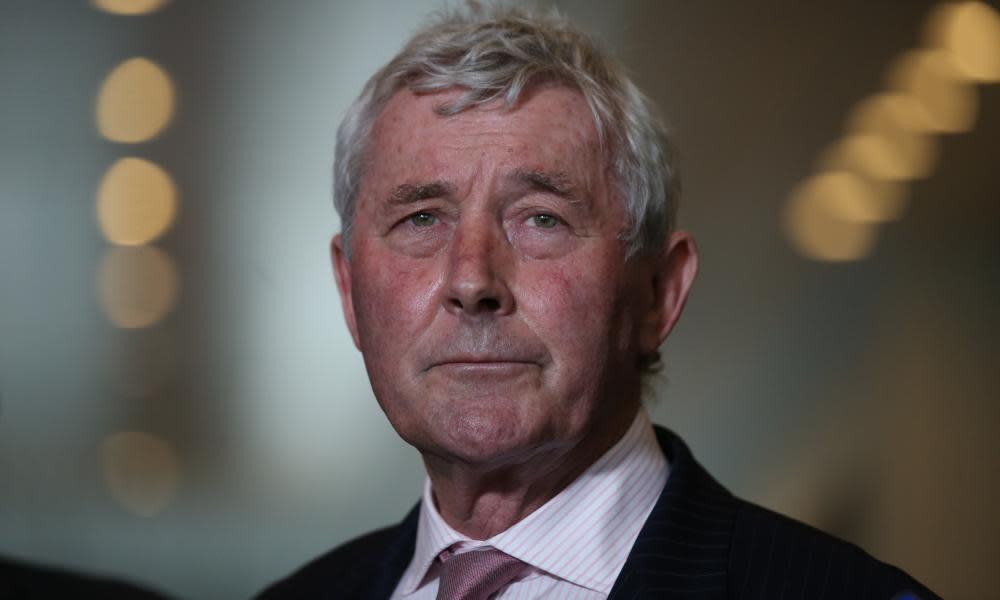Secrecy in trial of Witness K lawyer Bernard Collaery an offence against open justice: law council

The nation’s peak legal group has thrown its support behind Bernard Collaery as he defends the Timor-Leste spying case, warning that laws used to shroud proceedings are protecting “broadly defined national security at the expense of the rights of the accused”.
Collaery, a barrister and former ACT attorney-general, is facing jail for allegedly helping his client, intelligence officer Witness K, reveal information about Australia’s bugging of Timor-Leste government offices to gain the upper hand during oil and gas negotiations in 2004.
Large parts of the case have been held in closed court because the federal government has invoked the National Security Information Act, which is designed to govern the handling of sensitive and protected information by the courts.
The Law Council of Australia has previously criticised aspects of the NSI Act but has avoided commenting directly on the case brought against Collaery itself.
But on Friday the council’s president, Pauline Wright, issued a statement of support to Bernard Collaery, which detailed at length the concerns with the case’s secrecy.
“As president of the Law Council, on behalf of the profession across Australia, I wish to offer my support to a highly regarded member of the legal profession,” Wright said.
“It has been well-reported that the legislation requires this case, for the most part, to be conducted behind closed doors.”
Wright said the use of the NSI Act offends the “principles of open justice” and said holding court openly, and not behind closed doors, was a “basic rule of the common law”.
“The Law Council considers the NSI Act currently tilts the balance too far in favour of the interests of protecting broadly defined national security at the expense of the rights of the accused, and maintains that it is not a proportionate response to addressing the risk that information prejudicial to national security may be released,” she said.
“It is the belief of the Law Council that courts should be empowered to identify the relevant considerations and the degree of weight to be placed on each of them.”
The council has repeatedly called for reforms to the NSI Act.
It wants changes to the law to force courts to give reasons justifying a decision to hear matters in closed court.
It has also called for a scheme to appoint “contradictors”, or special advocates, who speak on behalf of any party forced to leave a courtroom before confidential material is canvassed.
Wright said reform was needed to “recalibrate the balance between the requirements of open justice and protecting the community”.
The case against Collaery continues in the ACT supreme court, where it is still locked in pre-trial stages.
Last month, government lawyers invoked cabinet confidence in an attempt to stop Collaery and his team from viewing a briefing to the prime minister relevant to the Timor-Leste spying case.

 Yahoo News
Yahoo News 
